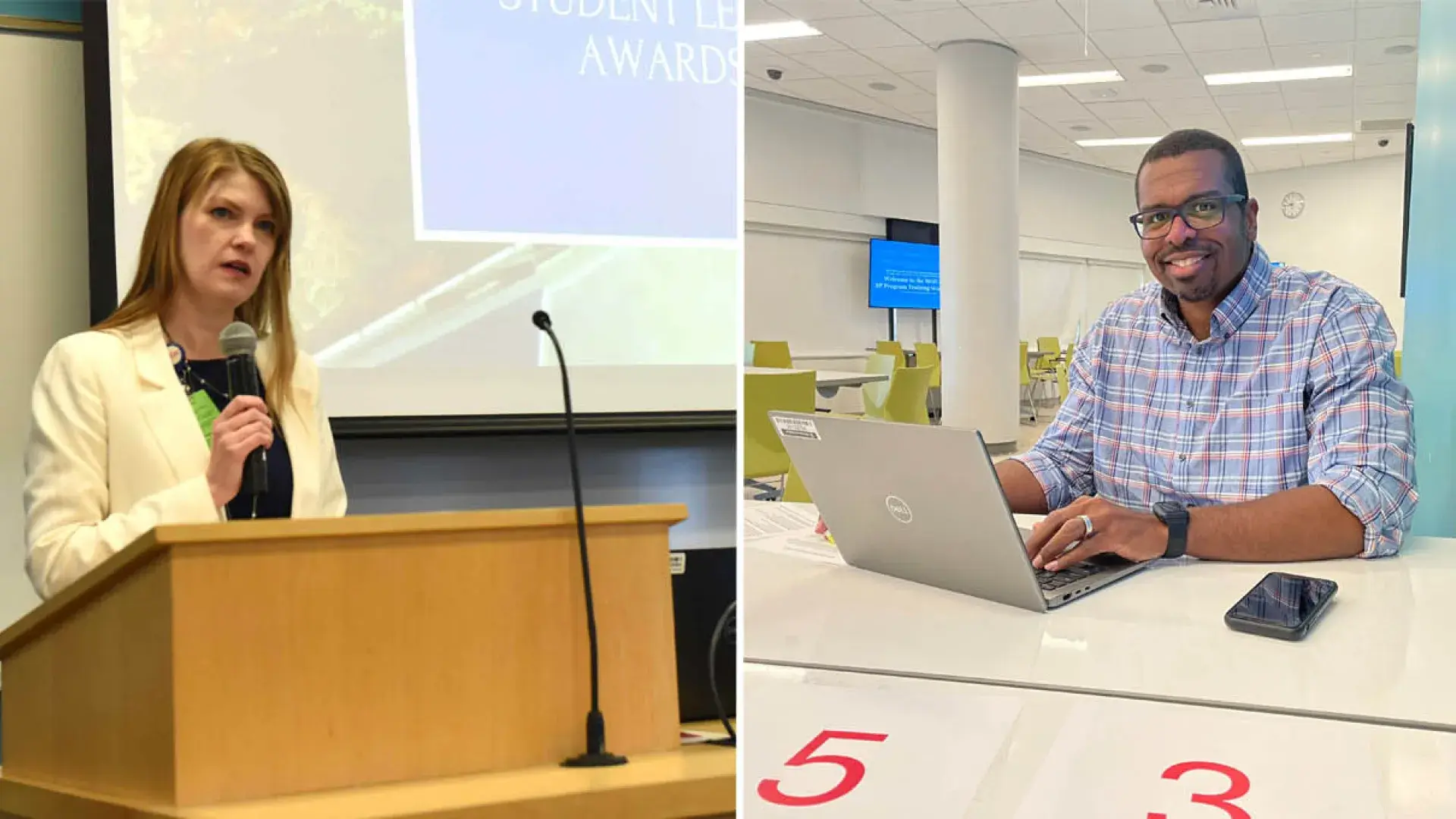
Veteran MGH Institute employees worked with MGB groups focusing on workplace violence and disabilities
It’s Pillars of Excellence season at Mass General Brigham, a time when the system celebrates the outstanding contributions of talented employees across the organization. This year, two MGH Institute employees – Luella Benn and Tony Williams - shared Pillars Awards with colleagues they worked with from Mass General Brigham.
Benn, the Institute’s assistant dean for Student Services, was on the Disability Competent Care Assessment and Training Team while Williams, the Institute’s Standardized Patient Manager, helped the Brigham and Women’s Hospital team with the project, Developing Psychological Safety & Wellbeing: Responding to Workplace Violence & Incivility Program.
Luella Benn
“I think it's wonderful,” said Benn of the Pillars Award. “I do sometimes feel like disability lags behind in the recognition of that as being important work and important to DEI objectives, so it's really exciting to see that other people are viewing this as important work.”
Benn and her subcommittee were charged with uniting the various care policies across the system that are in place for patients with disabilities. The team created a training module for clinicians to better work with patients with disabilities, created an online resource center with links to different resources related to disability, competent care, disability etiquette, awareness of service animals, and laws around what people are and are not allowed to ask.
“Some hospitals had policies in place and information available to employees, and some places didn't,” observed Benn. “I think people working in hospitals have a lot of questions about things that they don't know - the laws or rules around these things like service animals. What's the difference between a service animal and an emotional support animal? What can I say to somebody who has a service animal? How do you treat people with disabilities with respect, without talking down to them. People have good intentions but don't always have the tools that are necessary in order to be effective.”
Benn says the group is working toward recommending a policy system wide and hopes the recognition of the Pillars Award puts disability services top of mind for more employees.
“It's really important work,” noted Benn, who has been with the MGH Institute for six years. “Disability is the largest marginalized population, and it crosses every other identity that somebody might have. There are people of color with disabilities. There are elderly people with disabilities. There are kids with disabilities. There are poor people with disabilities, rich people with disabilities. I hope it brings awareness that we do need unique skills, and we do need to recognize it as an area where patients with disabilities aren't always getting the same care as non-disabled patients.”
Tony Williams
Mass General Brigham and Brigham and Women's Hospital is working with their nursing staff to address workplace violence and psychological safety. They developed a course to address some of the statistics, the foundational issues surrounding workplace violence, and creating a safe work environment for these nurses. Part of the training and education involved simulated participants (SPs) who were under the direction of Williams.
“When this was initiated and piloted, there were a lot of elements that needed to be adjusted to maintain best practices for simulation education, and the SPs played a big part in that,” said Williams. “Many of them are experienced and have worked with this type of learning module for a number of years, so they were able to provide some feedback and guidance for the faculty along with myself.”
The simulated participants (SPs) took part in three scenarios:
- Violent or psychological safety concern surrounding a patient
- Two coworkers fighting
- Self-care as a nurse
“The idea was for the SPs and nurses to navigate, using some of the tools they were exposed to during the class to help to address some of these issues,” said Williams. “At the end, they would debrief and try to work through and reflect on the scenarios and how they impacted their learning, experience.”
Williams, who has been working at the IHP since 2018, says he appreciates Mass General Brigham reaching out and called this project the largest he and his team have done.
“It's always good to be able to sit down and talk with people to hear their ideas, what their objectives are and then see how that can translate into a simulation experience,” noted Williams. “Just the level of professionalism that has been shown on the part of MGB and the faculty representing this program has been tremendous.”
Also tremendous, says Williams, is the Pillars Award and what it represents.
“It’s so nice to be able to be recognized for this and be a part of it,” concluded Williams. “Without the SPs it wouldn't be possible; they are committed and dedicated to the work as are the faculty and learners, which just goes to show why this is such a well-deserved award for them.”
The MGH Institute will hold its own Pillars Award ceremony on Monday, April 1.
Do you have a story the Office of Strategic Communications should know about? If so, let us know.
